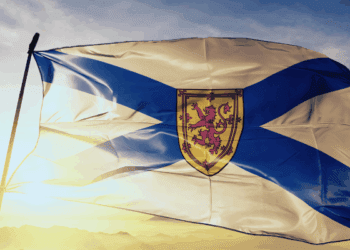 The impending collapse of the Trans-Pacific Partnership free trade deal should have Canada pivoting towards a new trade policy in Asia, writes Brian Lee Crowley. Luckily, though, emerging powerhouses in India and Japan provide a welcome opportunity for Canada to advance its strategic interests.
The impending collapse of the Trans-Pacific Partnership free trade deal should have Canada pivoting towards a new trade policy in Asia, writes Brian Lee Crowley. Luckily, though, emerging powerhouses in India and Japan provide a welcome opportunity for Canada to advance its strategic interests.
By Brian Lee Crowley, Nov. 25, 2016
Assuming that President-elect Donald Trump follows through on his promise to scuttle the Trans-Pacific Partnership, what should Canada put in its place? Here’s the case for making the emerging Japan-India axis the cornerstone for Canada’s Asia policy.
First the economics. India is Asia’s emerging high-growth economy and population behemoth. China is increasingly yesterday’s story, with its economy losing steam, its looming crisis of an ageing population and its Potemkin infrastructure. India under its dynamic prime minister, Narendra Modi, by contrast, is gathering powerful momentum every day. Not only is it the world’s second most populous country, but its economy is going gangbusters (its growth rate is now consistently higher than China’s and its statistics are more reliable). Its insatiable appetite for investment and increasing self-confidence mean that barriers to investment are falling all the time.
Japan is the world’s third largest economy, a technology, finance and business process powerhouse whose economic energy has already been the powerful hand behind the rise of many an Asian tiger. Japan is now deploying its impressive business, diplomatic and political weight behind India. This is a smart bet that Mr Modi welcomes, as symbolised by the lovefest that characterised Japanese prime minister Shinzo Abe’s just completed visit to India.
India is Asia’s emerging high-growth economy and population behemoth. China is increasingly yesterday’s story
If America is going to back away from leading the charge for integrated trade within the market-oriented economies of the Pacific Rim that TPP represented, Tokyo and Delhi are ready to pick up the baton. At the moment Canada doesn’t even seem to realise there is a race.
Second there are the strategic considerations. TPP was to be the economic foundation of a burgeoning alliance among Pacific Rim countries seeking to create a unified counterweight to China’s growing regional power. The point was not to oppose China’s rise, but to create an institutional architecture to magnify the power of democratic countries under the rule of law and give them the collective bargaining power to ensure that China couldn’t just bully its way to regional dominance. China loves to deal with other countries one on one, because it is always the 800 lb gorilla at the table.
That’s why bilateral trade deals around the region are no substitute for TPP. Countries like Canada need a new grand strategic vision of what a well-managed Pacific region looks like that can stand toe-to-toe with China. By far the best centre of gravity for such a deal is the Japan-India axis.
The Japanese were thinking about this long before Donald Trump’s rise to power. As far back as 2012, Mr Abe was touting the idea of a Democratic Security Diamond “whereby Australia, India, Japan, and the U.S. state of Hawaii form a diamond to safeguard the maritime commons stretching from the Indian Ocean region to the western Pacific.”
Japan isn’t just thinking about India in terms of its present level of power and influence, but as a force to be built up as the population and economic foundation stone of an Asia secured by a power balance between blocs, including a bloc that is deeply committed to the values of democracy, the rule of law, market economics, free trade and freedom of the seas. These are all values on which Canada has staked its future.
If America is going to back away from leading the charge for integrated trade within the market-oriented economies of the Pacific Rim that TPP represented, Tokyo and Delhi are ready to pick up the baton
No one was surprised, then, when Mr Modi chose a visit to Tokyo to call out China on its bad behaviour in Asia, referring indirectly to the Chinese military build-up in the South China Sea, its heavy-handedness in Tibet, its territorial ambitions in northern India and more: “everywhere around us, we see an 18th century expansionist mind-set: encroaching in other countries, intruding in others’ waters, invading other countries and capturing territory.”
Australia, a country much like Canada in many ways, but with a much heightened consciousness of the strategic and security challenge represented by China, has embraced the emerging Japan-India coalition. At the first India-Australia-Japan trilateral dialogue last year, the three parties spent an entire day discussing China and, according to the Japanese, there was a high degree of consensus on the issues raised by Beijing’s rise.
I underline Australia’s participation because it makes clear that small democracies with Pacific interests needn’t choose between China and their traditional alliances. Australia has a bilateral trade deal with Beijing, but that doesn’t mean they are naïve about the need to protect their security interests or the dangers of becoming perilously over-reliant on a China that believes any attempt to counter its overweening ambitions is an affront to be punished.
By all means, Canada should trade with China. But its participation in the TPP negotiations showed that at least some in Ottawa understood that trade cannot trump a judicious advancing of our strategic interests in concert with those who share our values. With the collapse of the TPP, Canada’s next calls should be to Messieurs Modi and Abe.
Brian Lee Crowley (twitter.com/brianleecrowley) is the Managing Director of the Macdonald-Laurier Institute, an independent non-partisan public policy think tank in Ottawa: www.macdonaldlaurier.ca.




